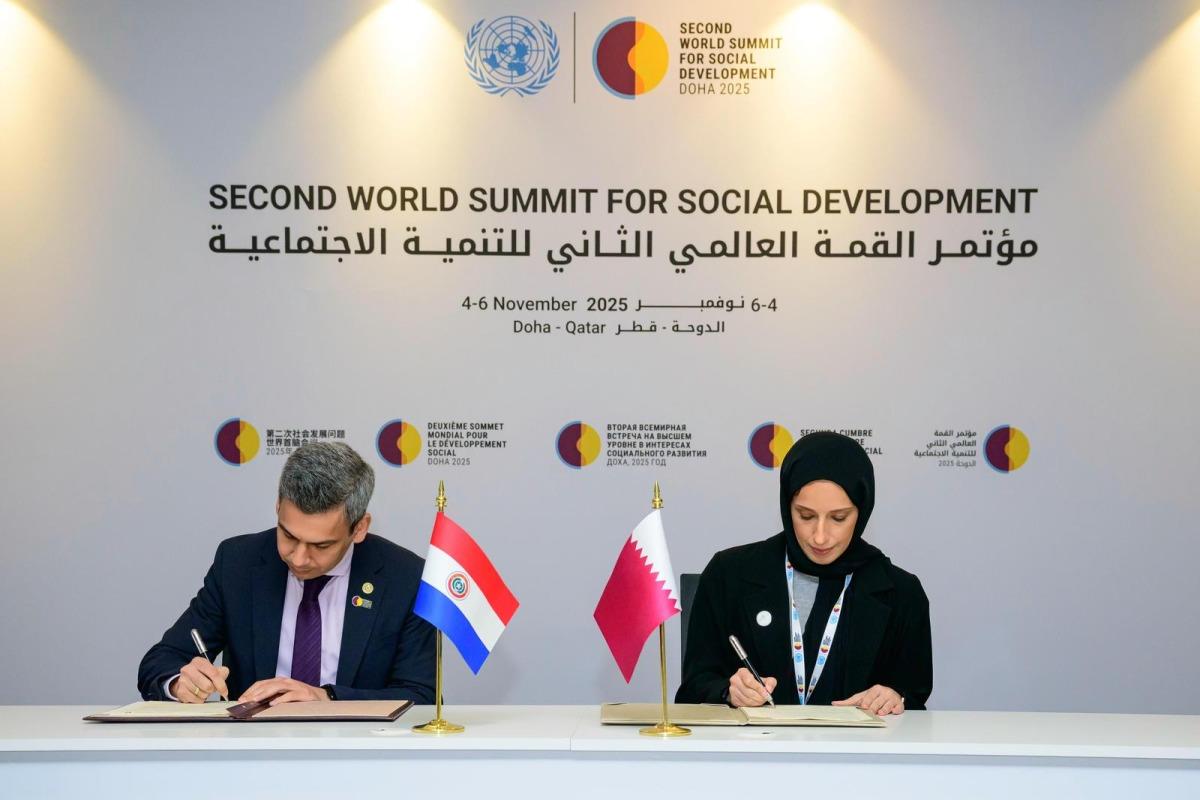
Under the agreement, the two nations commit to expanding collaboration in areas including social welfare, issues facing minors, the elderly, and persons with disabilities, as well as family, women and children’s affairs. The pact also outlines exchange of studies, information and expertise, and the formation of a joint committee to monitor implementation and develop future projects.
Qatar frames the initiative within its long-term national agenda. The MoU is described as contributing to the country’s efforts to broaden global partnerships in human and social development and to “exchange successful experiences in empowering people and promoting social justice in line with Qatar National Vision 2030.”
From Paraguay’s standpoint, the agreement offers access to Qatar’s expanding social-development expertise and resources. Paraguay has highlighted the importance of strategic collaborations to advance welfare systems in a region where social disparities remain a significant governance challenge.
Experts analysing the move note that Qatar’s hosting of the World Summit on Social Development places it at the centre of global social-policy discussions. The agreement with Paraguay thus serves dual purposes: enhancing a bilateral relationship and strengthening Qatar’s image as a social-development actor. For Paraguay, the partnership adds a non-traditional ally in the Gulf region with which it can diversify diplomatic and development-cooperation channels.
Observers point out that the practical track record of MoUs in delivering outcomes often depends on sustained political commitment and resource allocation. A spokesperson for a regional social-policy think-tank commented that to fulfil its potential the joint committee must swiftly move from signing to operationalising pilot programmes. A previous interview noted that countries which allocate clear timelines and budget frameworks for such agreements tend to produce measurable results in welfare outcomes.
This pact comes amid a broader sequence of Qatar expanding its international cooperation in the social sphere. A meeting held in October between Qatar’s Minister of State for International Cooperation, Her Excellency Maryam bint Ali bin Nasser Al Misnad, and Paraguay’s Foreign Affairs Minister, Her Excellency Rubén Ramírez Lezcano, discussed developmental and humanitarian collaboration.
While the announcement highlights promising intentions, implementation will be key to evaluating its impact. Both countries will need to establish mechanisms for tracking progress on welfare programmes, defining benchmarks for disability inclusion, elderly support, and women’s and children’s services. The joint committee envisaged in the MoU is expected to prioritise building technical and institutional capacity rather than simply managing exchanges.
Paraguay’s role in this partnership is particularly significant. As a land-locked Latin American nation under regional trade bloc commitments, it is exploring new partnerships beyond its immediate geography. The new agreement with Qatar provides access to Gulf region expertise, which may inform Paraguay’s efforts to enhance social infrastructure and welfare delivery models.
The MoU holds particular promise in the field of persons with disabilities, an area identified by both governments as requiring comprehensive frameworks. Qatar has been investing in inclusive-education and assisted-living services, while Paraguay has expressed interest in improving regulatory and service-delivery systems for persons with disabilities and older citizens.
Analysts caution that while the MoU lists broad areas for joint work, success will depend on allocating responsibilities, funding and timeline commitments. Without these it risks becoming part of the many high-level agreements that lack follow-through. One researcher noted that robust follow-through often involves public-civil-society partnerships, data-sharing platforms, and monitoring systems—elements yet to be detailed by the two governments.
Topics
Qatar
